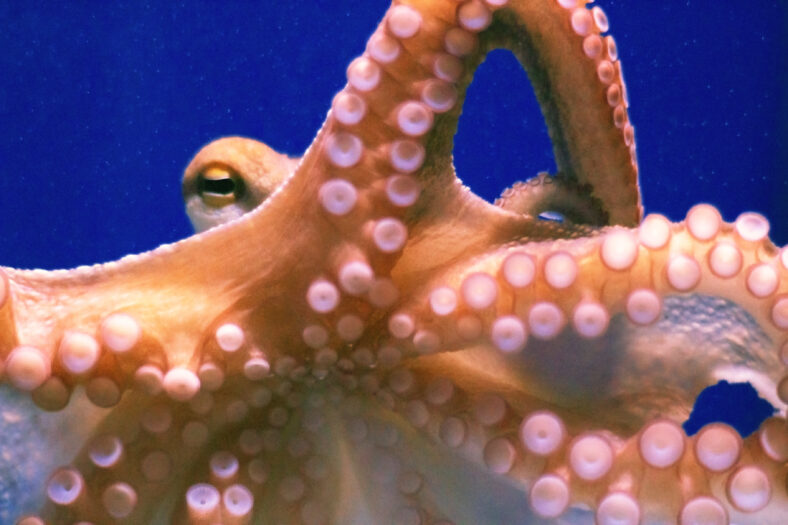These Male Octopuses Paralyze And Poison Females Before Mating To Avoid Being Eaten

To humans, the bite of a blue-line octopus can be life-threatening, but within its own species, it’s just a regular part of their lives that they can easily recover from.
Prior to mating, male blue-lined octopuses (Hapalochlaena fasciata) will paralyze females with a precisely placed venomous bite to avoid being eaten.
Female blue-lined octopuses are twice the size of the males and have been known to eat their lovers after copulation. The snack provides females with the nutrients they need to sustain themselves and their developing offspring.
Researchers from the University of Queensland in Australia captured multiple male and female specimens to observe them during mating. They noticed that the males bit the females, leaving a slight puncture in the aorta and allowing a small amount of poison to enter.
The poison was tetrodotoxin, the same one used by pufferfish. It was made by symbiotic bacteria that live in the males’ bodies. The female was paralyzed while the male copulated with her.
When the research team monitored their vital signs, they saw that the female’s breathing rate decreased dramatically when mating began and stopped altogether after about eight minutes.
Her skin color went pale, and her pupils constricted. All of the females tested did not respond to bright flashes of light or other external stimuli, indicating that nerve control was lost.
“In this asphyxia-like state, the female body color turned pale. The pupils also constricted, losing all reflexes to bright light flashes, symptomatic of a loss of nerve control such as during tetrodotoxin envenomation,” wrote the researchers.
“Once the females were immobilized, the males successfully copulated, and mating ended when the females regained control of their arms and pushed the males off.”

Sign up for Chip Chick’s newsletter and get stories like this delivered to your inbox.
When it was over, the males had an increased chance of escaping without harm and to avoid becoming a meal. None of the females in the study died from the bites, which suggests that they have a certain degree of resistance to the toxin.
It is an ability that is crucial for species that use venom to overcome prey and risk accidentally poisoning themselves.
Still, the female octopuses did not emerge from the encounter completely unscathed. After mating, swollen lumps and open wounds were spotted at the site of their bites. Nevertheless, they all went on to lay eggs three to 29 days later.
Mating strategies such as this one are not only practiced by male blue-lined octopuses. Many smaller male species have evolved other means to prevent themselves from getting eaten by their female partners.
For example, one species uses an elongated arm to copulate from a distance, minimizing the risk of being devoured.
The details of the new study were published in the journal Current Biology.
More About:Animals





